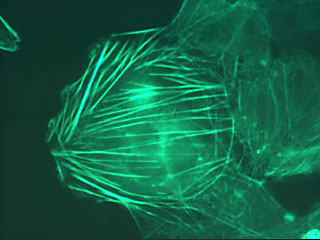Cancer: Cells behaving badly
For the most part, every cell in your body has the same DNA in it, contained in 23 pairs of chromosomes, which must be copied with extraordinary accuracy each time the cell divides. Sometimes, though, there are mistakes, called mutations, in the DNA. Surprisingly, most damage to the DNA happens through “normal” cellular metabolism. In addition to this normal rate of damage, our cells are constantly acquiring mutations in other ways as well, from ultraviolet rays in sunlight or exposure to certain elements in the environment. Other things can go wrong inside the cell: Its machinery can stop working properly, creating problems replicating or dividing up DNA during cell division, or sometimes viral DNA can take up residence in the cell.
Fortunately, we have lots of built-in mechanisms to correct these errors when they happen. Usually a cell with mutations will stop and fix its DNA; if it can’t, it will undergo apoptosis. But every now and then, a damaged cell slips through the repair checkpoint and the immune system’s surveillance system. The more damage inflicted on the cell, the more likely it is to malfunction and potentially become precancerous.
What happens then? Most mutations will kill a cell rather than give it super powers. But if the cell survives, it will pass its mutations along as it divides. Mutations that affect DNA replication can give rise to new genetic changes as the cell divides. As these random changes accumulate, they can affect the cell’s behavior, bestowing upon it the qualities associated with cancer: uncontrolled growth, lack of response to signals, etc. This proliferation of misbehaving—but well adapted—cells is a microcosmic example of genetic variation and natural selection, a kind of malicious cellular evolution.
Next: Targeting the root »
Fortunately, we have lots of built-in mechanisms to correct these errors when they happen. Usually a cell with mutations will stop and fix its DNA; if it can’t, it will undergo apoptosis. But every now and then, a damaged cell slips through the repair checkpoint and the immune system’s surveillance system. The more damage inflicted on the cell, the more likely it is to malfunction and potentially become precancerous.
What happens then? Most mutations will kill a cell rather than give it super powers. But if the cell survives, it will pass its mutations along as it divides. Mutations that affect DNA replication can give rise to new genetic changes as the cell divides. As these random changes accumulate, they can affect the cell’s behavior, bestowing upon it the qualities associated with cancer: uncontrolled growth, lack of response to signals, etc. This proliferation of misbehaving—but well adapted—cells is a microcosmic example of genetic variation and natural selection, a kind of malicious cellular evolution.
Next: Targeting the root »







